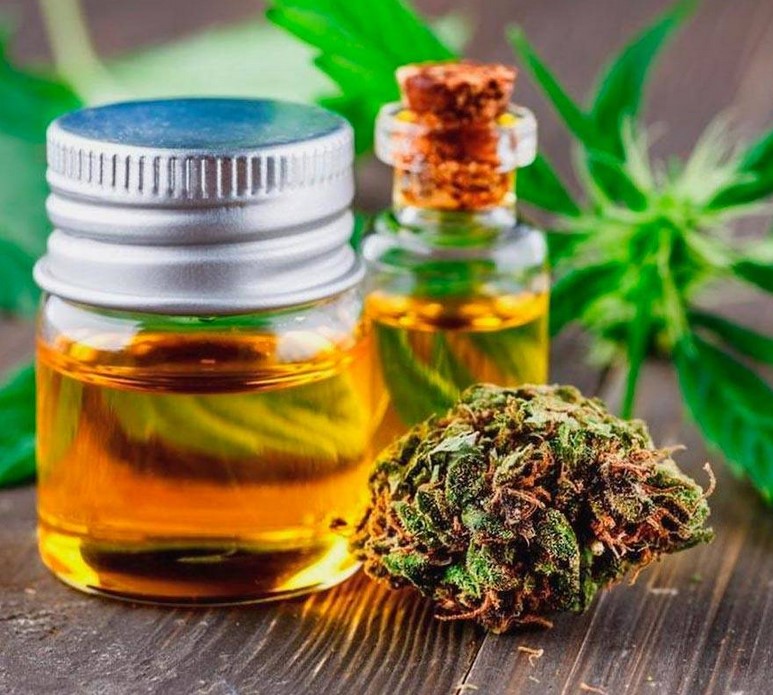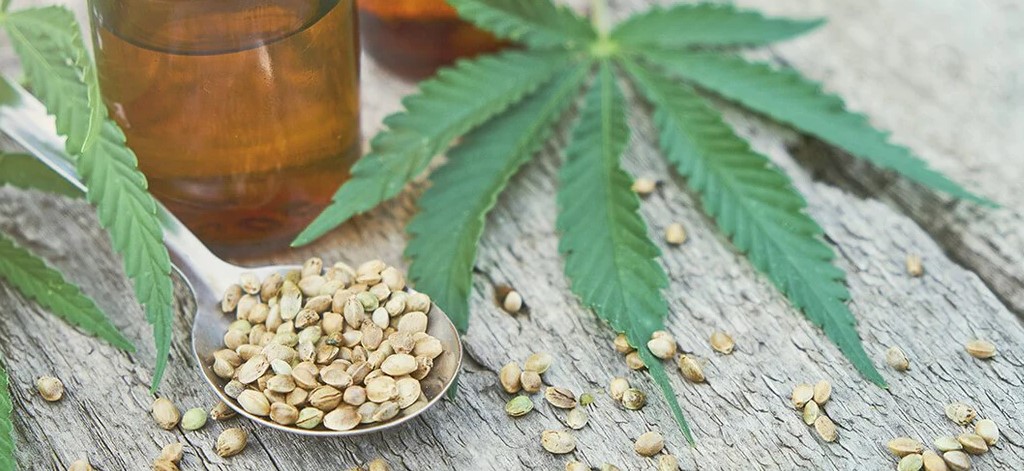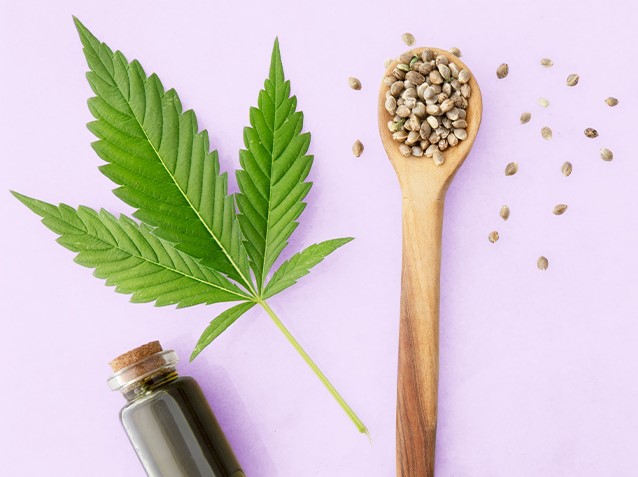Non classé
Hemp Oil: Hemp Oil Side Effects
Hemp seed oil, often known as hemp oil or cannabis oil, is the fatty oil extracted from hemp seeds. Despite the fact that hemp oil and CBD are frequently referred to as the same thing, they are not precisely the same. Hemp oil, for example, has a significantly lower concentration of cannabinoids than CBD.
Hemp oil is extracted from the seeds of Cannabis plants, also known as hemp plants. It’s high in omega fatty acids, including EPA and DHA, as well as vitamins E and other minerals. Hemp oil is sold in many high street stores and on the internet in the United Kingdom, where it’s utilized in a variety of goods ranging from skincare to salad dressings. Hemp oil comes in a variety of forms, including hemp tablets, capsules, oils, and sprays, so it’s up to you how you take it.
Hemp vs. Marijuana
Before we go into the differences and similarities between CBD and hemp oil, it’s essential to understand the distinctions between hemp and marijuana plants. Both are in the Cannabis Family; however, they differ significantly.

Hemp
CBD and hemp oils are extracted from the hemp plant, as are cannabis oils. Cannabis sativa var. industrial Hemp is a cultivar of cannabis with leaves, seeds, and fiber that is cultivated for industrial use. Hemp plants include a variety of cannabinoids that aren’t mind-altering.
Hemp has a wide range of uses that extend beyond CBD extraction. Hemp fibers can be used to create textiles, paper, rope, and other products. Growers now cultivate hemp specifically for the purpose of producing CBD oil and other Produits CBD because it is high in CBD.
Marijuana
Marijuana is a well-known psychoactive drug, and it’s the first thing that comes to mind when someone says “cannabis.” This plant is divisive, but its medicinal and recreational use is spreading throughout the world. Cannabis sativa and Cannabis indica are two distinct varieties of marijuana.
Marijuana is sometimes used for medicinal purposes, but it is typically used for recreational purposes such as obtaining “high.” This is due to the fact that cannabis contains psychotropic cannabinoids like THC, which hemp does not have in sufficient amounts.
Hemp and marijuana are both grown to have specific cannabinoid proportions, as are other plants. Marijuana growers typically focus on high-THC strains while hemp cultivators favor CBD. Keep in mind that marijuana is a Schedule I narcotic in the United Kingdom, whereas hemp is not. Medical marijuana is legal in the United Kingdom, but it is tightly regulated.
Hemp oil vs CBD oil: the similarities and differences
Let’s start with your stated reason for visiting this page: What are the major distinctions between hemp oil and CBD oil, as defined by their names? They share a number of characteristics. The following is a comparison of both:
Similarities
Hemp oil is a type of cannabis-derived CBD oil that looks and acts like CBD oils. Because marijuana is still illegal in the United Kingdom, hemp oil and CBD oil are sometimes manufactured from it. This means that no matter how much CBD or hemp oil you take, you will not get high since there is no THC (or only traces) present.
Differences
CBD is extracted from the leaves of the cannabis plant, whereas hemp oil is obtained from hemp seeds and is sometimes known as “hemp seed oil.” CBD is produced from trichomes on the leaves, as previously said. Hemp seed oil comes from hemp seeds and is sometimes referred to as “hemp seed oil,” because it’s made from them.
Cannabis plants are used to produce the majority of CBD products on the market today, including ours. Lab reports are generally included to confirm the amounts of various cannabinoid components in respectable CBD firms (such as us!). Check your product’s CBD levels and make sure THC and other psychotropic cannabinoids do not exceed the limit of quantitation (BQL).
Avoiding confusion with CBD oil and hemp oil
We know that CBD oil and hemp oil are two different items, yet they’re frequently conflated since they’re produced from the same plant. It’s crucial to note that choosing one over the other will not harm you; instead, their uses are quite different.
Health Benefits of Hemp Oil
Hemp oil is produced from hemp seeds using a cold-press process similar to that used in the production of olive oil.
Despite the fact that hemp and marijuana (cannabis) are both plants in the Cannabis sativa L family, they are two separate species with distinct chemical compositions. The most significant distinction is THC content, which is present in greater amounts in marijuana.
Hemp has about 0.3 percent THC, which is lower than cannabis (up to 28%). As a result, hemp-derived items are unable to create a “high” and are instead utilized for therapeutic purposes.
Health Benefits
Hemp oil’s high content of polyunsaturated fatty acids, especially linoleic and alpha-linolenic acids, is behind many of its health advantages. The ratio of omega-6 to omega-3 fatty acids is 3:1.
A 3:1 fatty acid ratio is considered optimal for human health benefits, according to specialists. Hemp oil has been found in studies to help with a range of illnesses and health conditions, including the following:
Improved Skin
Hemp oil has been found in a dermatology study to aid with the signs and symptoms of atopic dermatitis, also known as eczema. According to reports, the substances in hemp oil responsible for these effects are the fatty acids.
Hemp oil has been used to cure a variety of skin issues, including cradle cap, psoriasis, and acne. Hemp oil also promotes healthy skin resistance by enhancing its ability to resist infection.
Lower Blood Pressure
Hemp oil’s high quantity of omega-3 fatty acids may assist reduce blood pressure in those with hypertension (high blood pressure). Omega-3 fatty acid supplements should be combined with antihypertensive drugs to achieve blood pressure reduction.
Promotes Heart Health
Linoleic acid has been found in studies to decrease total cholesterol and low-density lipoprotein (LDL) cholesterol, also known as “bad” cholesterol.
High cholesterol levels are linked with an increased risk of high blood pressure, stroke, and heart disease.
Pain Relief
Hemp oil’s anti-inflammatory properties assist to relieve pain. Massage hemp seed oil on the hurting area to provide natural pain relief.
Inflammation Reduction
Hemp oil’s Gamma-Linolenic Acid (GLA) has been found to reduce inflammation. GLA-rich plants have been identified to help with inflammatory disease symptoms including irritable bowel syndrome (IBS), rheumatoid arthritis (RA), and multiple sclerosis (MS).
Supports a Healthy Pregnancy
Hemp oil is a good source of omega-3 fatty acids, making it an excellent addition to pregnant women’s diets. Omega-3 fatty acids are necessary throughout pregnancy, according to studies. They aid in the development of the baby’s brain and eyes as well as maternal depression reduction.

Hemp Oil Side Effects
THC and its cannabinoids, such as CBD, have several disadvantages. While cannabis in general is generally well-tolerated, it has some negative effects that you should be aware of. Dry mouth, tiredness, drowsiness, diminished hunger, and dizziness are the most common THC side effects.
The most frequent CBD side effects include reduced sperm count, coordination issues, and cough and red eyes. CBD has few negative side effects when used appropriately, although it can cause impotence in rare cases. Reduced sperm count is the most common CBD drawback, followed by coordination problems and cough and red eyes. Other medicines with comparable symptoms might exacerbate CBD’s harmful impacts.
CBD is broken down in the liver in a similar manner to some medicines, and this may alter blood levels of pharmaceuticals. People who take any of the following well-known drugs should avoid CBD or use it with caution:
- Warfarin (blood thinner)
- Antihistamines
- Antiretrovirals
- Some statins (atorvastatin and simvastatin)
- Certain antidepressants
- Certain antipsychotics
CBD oil should not be used by individuals on any sort of chronic prescription. It’s critical to contact your regular doctor before taking CBD oil, as it might interfere with the medicine you’re taking now.
Amounts and Dosage
The Food and Drug Administration (FDA) does not have a set daily requirement for hemp oil, although hemp seed oil may be beneficial.
Hemp oil can be taken in a variety of ways, so the quantity used depends on how much you use it and what health advantages you want to achieve. Three tablespoons of hemp seed oil per day, according to experts, can provide the 3:1 fatty acid ratio necessary for a healthy diet if consumed once daily.
Hemp oil is extracted from the hemp seed and may be ingested straight or used in a variety of dishes, including salad dressings and other meals. Use hemp seed oil instead of olive oil to cook your dinner.
Flaxseed is high in omega-3 and -6 fatty acids, which are essential for brain growth, learning, and memory.
- Calories: 125
- Total fat: 14 grams
- Saturated fatty acids: 1 gram
- Monounsaturated fatty acids: 2 grams
- Polyunsaturated fatty acids: 11 grams
Hemp oil is a supplement, so you should consult your doctor before using it. Oral supplements are similar to other nutritional supplements in that they must only be consumed under the care of a medical expert.
Hemp oil should not be applied to damaged, inflamed skin. Test a tiny amount of hemp oil first to see whether you have any skin sensitivity before applying it topically. Hemp seed oil may also be used as a carrier for an essential-oil combination.
Cannabinoid Content
Hemp is illegal in nations where the THC concentration in cannabis is limited to 0.3 percent. Furthermore, hemp seed oil has been discovered to lack any cannabinoids, rendering it useless as a drug and producing no mind-altering effects.
Hemp oil, on the other hand, has a number of health advantages. It is high in polyunsaturated fatty acids with an ideal omega-6 to omega-3 ratio for good health.
Cannabis oils, which are often referred to as “butter” or “wax,” are high in phytocannabinoids, pharmaceutical cannabinoids that have been isolated from the plant. There are about 400 chemical components in cannabis plants, 60 of which are cannabinoids. THC and CBD are the most common cannabinoids, however their proportions vary depending on the plant species used to make the oil.
Hemp-derived CBD oil is the only exception, as this is generally done in countries where medical marijuana production is limited but CBD isn’t prohibited. Hemp CBD oil is frequently manufactured from lawfully cultivated medical cannabis plants because to the small amount of cannabidiol present in hemp, a lot of plant material is needed to generate a tiny quantity of oil.


